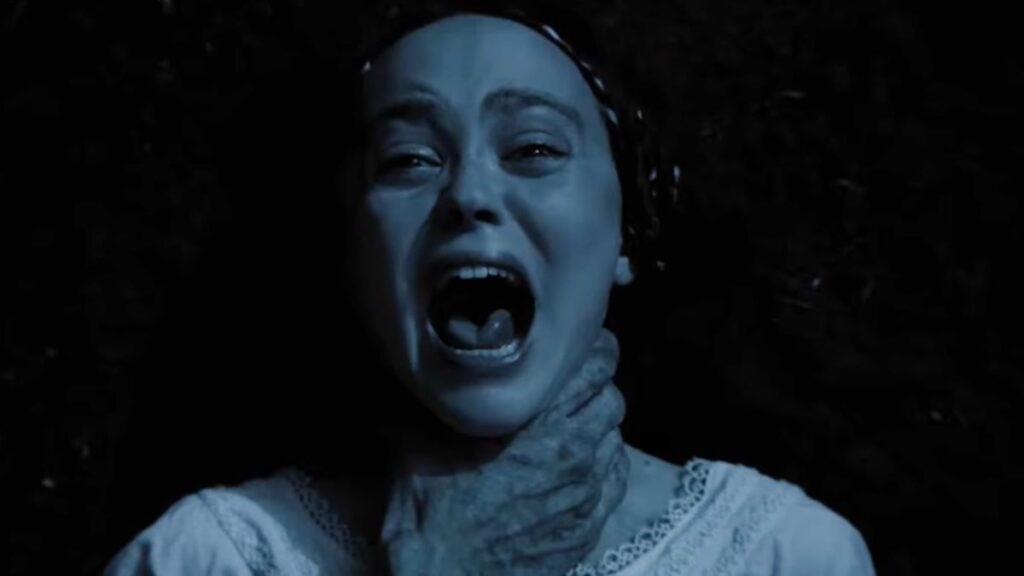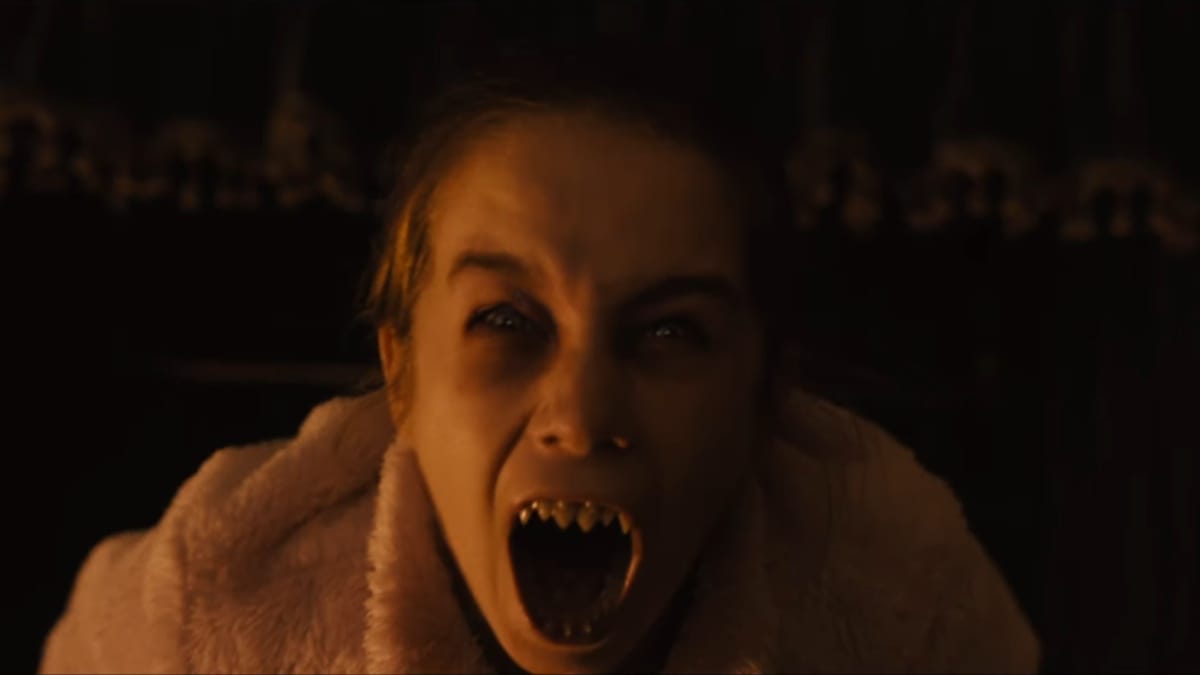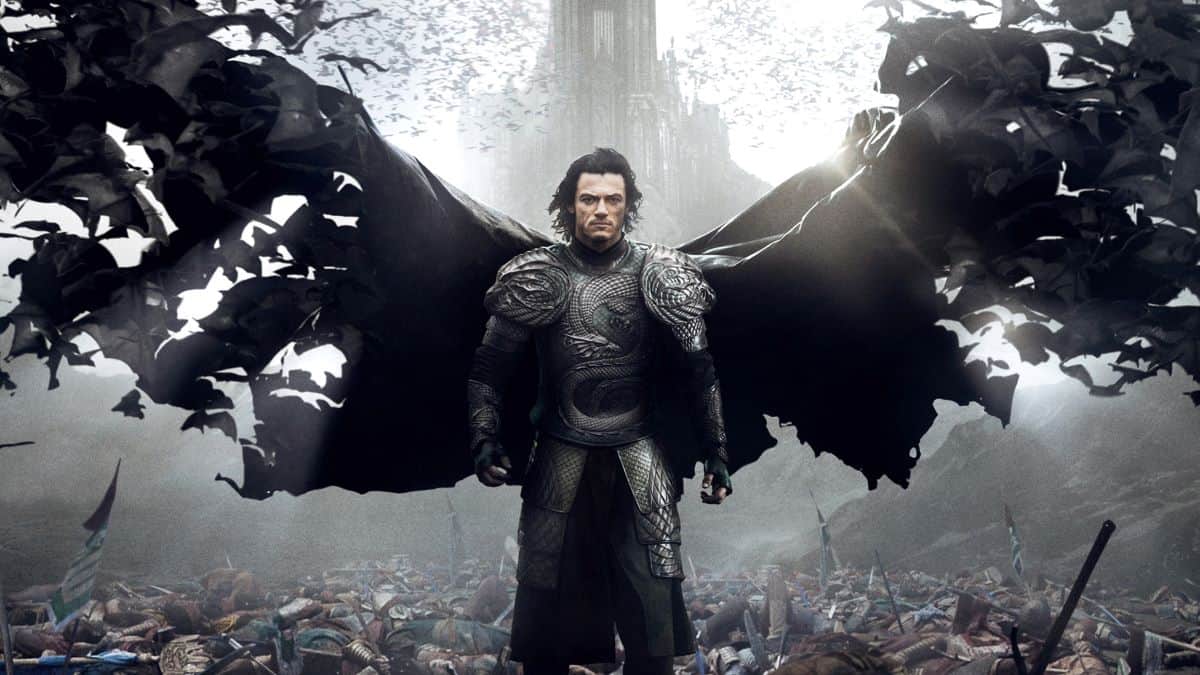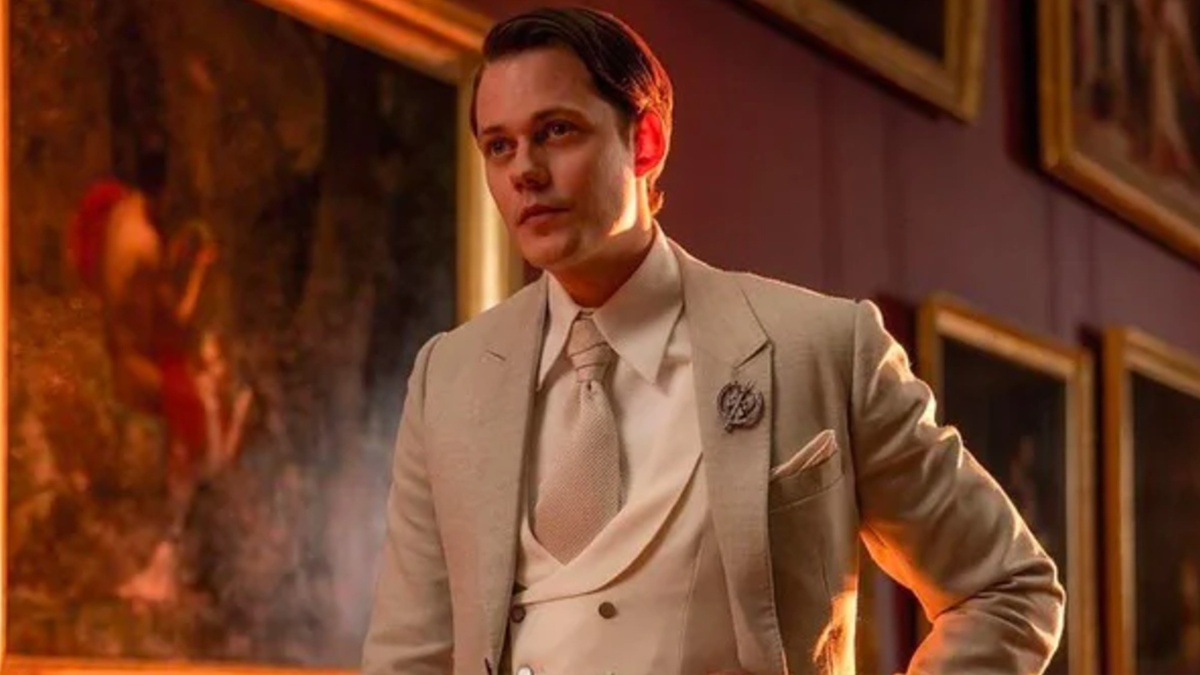Skip To...
Nosferatu does an impressive job of resurrecting the feeling of the original 1922 film. Like its source material, Robert Eggers’ adaptation is a vibes-based experience. The script is fine, but the imagery, music, and production design carry the experience. It’s at its best when it sweeps you away into a fantastical period piece. When you get a second to think about the story and its implications, the Count’s influence may be slightly less all-consuming.
Robert Eggers has been threatening to make Nosferatu for over a decade. He started talking about the project shortly after he put out The Witch. He got through The Lighthouse and The Northman in the meantime. Eggers loves bringing fairy tales and old myths to life with the power of modern cinema. This does feel like a crowning achievement in his specific oeuvre.
A Lifelong Infection

Nosferatu is mostly a loose retelling of Bram Stoker’s Dracula. That makes this the remake of a legally iffy copy. Without wishing to spoil anything, anyone who has seen F. W. Murnau’s 1922 classic already knows the broad strokes of the 2024 film’s plot. Lily-Rose Depp stars as Ellen Hutter, a young lady with a history of melancholy and strange fixations. Ellen is happily married to Thomas, an ambitious professional with dreams of providing for his bride. To that end, he ignores Ellen’s desperate warnings and takes a business trip to a familiar castle in the Carpathians. His voyage places him in the company of Count Orlok, the most off-putting human-shaped being in all of Europe. The slightest exposure to Orlok leaves Thomas fighting for his life, but it quickly becomes clear that his main concern should be Orlok’s fascination with his wife.
This is the largest innovation in Eggers’ Nosferatu. Ellen now has a history with the Count, leaving deep psychological scars on the poor young lady. Just as in the first film, Ellen experiences fits and sleepwalking sessions as Orlok’s influence takes hold. This time, however, Ellen knows exactly what she’s dealing with. Orlok is Ellen’s abusive ex and the living embodiment of her lust and shame. This added element adds a ton of impact, but that impact leaves some cracks in the narrative. Orlok immediately clarifies his desire to reclaim Ellen as his property, threatening the entirety of her hometown with a plague if she refuses. It’s a bizarre mix of seduction, self-sacrifice, and shame. I don’t think I like where it lands, but this may be one of those cases where the questions are more compelling than the answers.
Winter in Wisburg
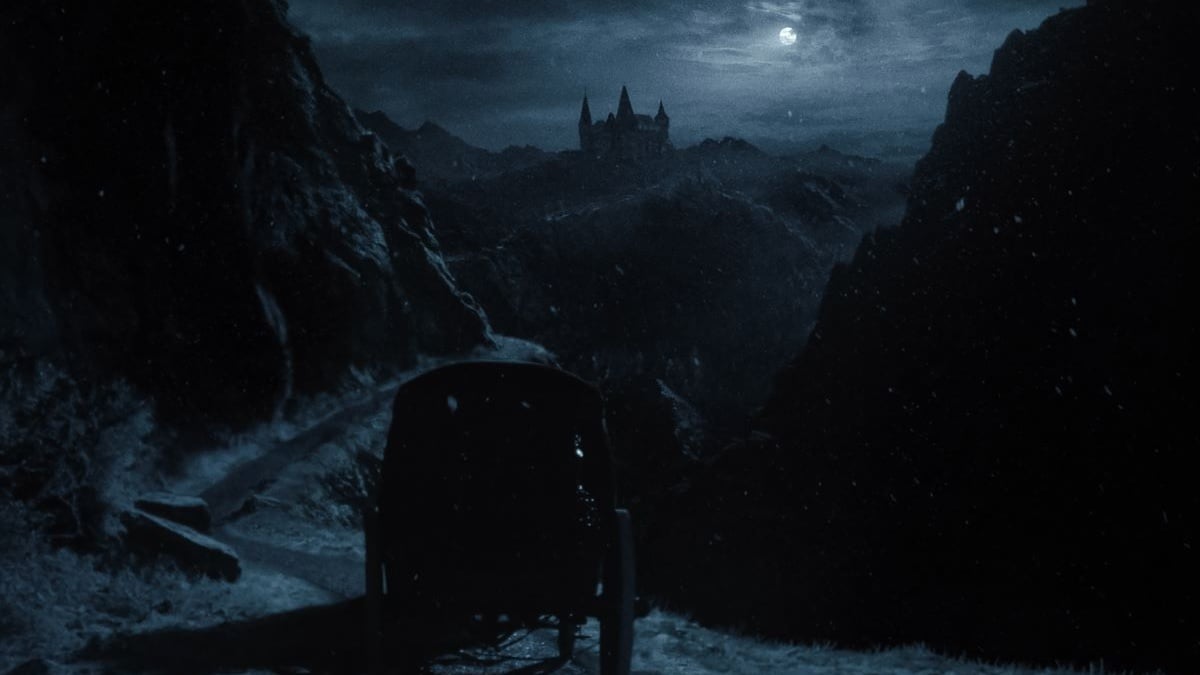
Zooming out from the central drama, Nosferatu is a stellar exercise in turning its setting into a character. The fictional village of Wisborg often looks a lot like another cinematic recreation of A Christmas Carol, but there’s a pulsating darkness beneath every cobblestone. Eggers’ incredibly sparing use of color paints the entire world in bracing extremes. You actually feel cold as the pure snow gathers on the brim of every passerby’s black top hat. This air of restraint permeates into every character. Ellen spends most of the movie living with Friedrich and Anna Harding, a note-perfect Victorian family, repression and all. You can see them shift toward the morals of their time as their lives become less comfortable. Contemporary medical science provides a few excellent horror moments, punctuating a point about shadows infecting “polite” society.
Nosferatu has many themes, but the one it shouts at the screen a couple of times centers on science. I didn’t think anyone needed to lay it out as the great Willem Dafoe did, but the theme remains present nonetheless. Nosferatu despises modern science, suggesting that it represents a kind of consensual mass amnesia that leaves humanity vulnerable. We can’t keep track of the things that go bump in the night if we’re busy trying to treat plagues with medicine. At one point, Orlok celebrates Thomas’s intellectual hometown the way a teenager points out a bar that doesn’t card. Dafoe is the most enjoyable part of this theme and one of the most entertaining elements of the film in general. It’s less like The Witch forcing modern audiences to contend with the perceptual realities of old-timey people and more like Eggers chiding humanity for forgetting its roots.
The Vampire and the Victims
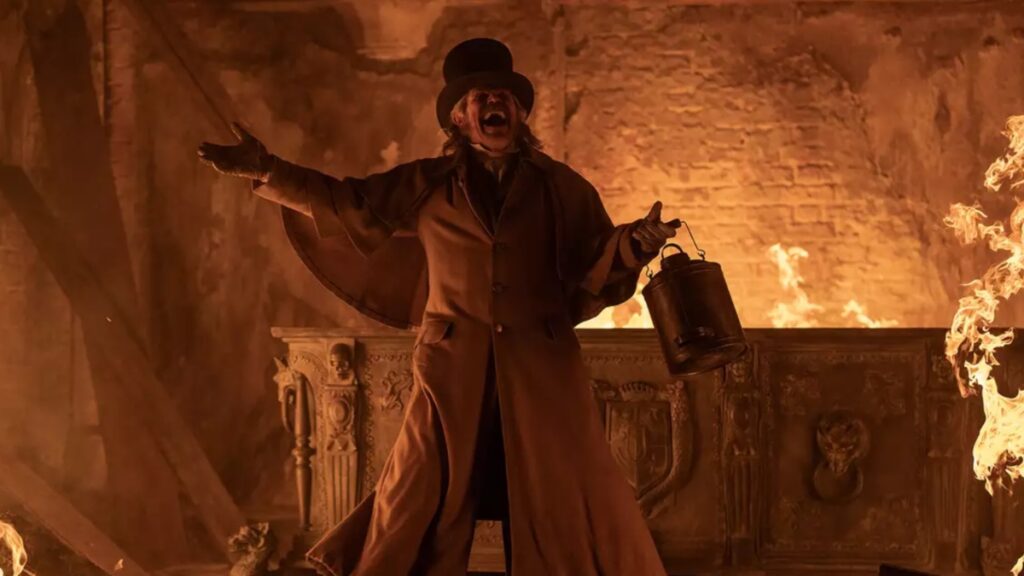
Lily-Rose Depp deserves the mountain of praise she’s getting for the film. Her performance is sharp, surprising, and consistently compelling, but she’s far from the only heavy hitter here. Nicholas Hoult co-stars as her hapless husband, who spends half the film stumbling through near-death scenarios. Aaron Taylor-Johnson has a slightly thankless role as a good-natured father and businessman. Emma Corrin may be the most period-appropriate performer of the bunch, bringing Lady Chatterly back for a much darker performance. Ralph Ineson portrays a local doctor who is almost comically understanding of every event he encounters. Finally, Dafoe should win an award for how much fun he had on this set. Hardcore fans may recall that he played Count Orlok portrayer Max Schreck in Shadow of the Vampire, but he’s equally delightful on the other side of the fangs. It’s a stellar cast that often elevates the material.
Bill Skarsgård has the title role as yet another classic movie monster. The trailers have done a good job of hiding his look, which is genuinely unnerving each time it appears. Despite Skarsgård’s natural charm, this is one of the least romantic depictions of a Dracula-like character ever made. His appearance is impressive, but his voice is jaw-dropping. Heavy and thick with a Romanian accent and frequently delivered in a foreign language, Skarsgård sounds like a demon. The It star makes every moment of stillness feel genuinely terrifying, and every outburst shakes you to your core. I think the general atmosphere and the often flawless shot composition might do more of the work than Skarsgård, but he’s stellar in the role.
I have a few issues with the pacing, editing, and structure of Nosferatu, but they almost disappear into the film’s long shadows. You’ll be captivated while you’re watching it, and the pure sense memory will outlast any complaints. Nosferatu isn’t perfect, but it captures a vibe that you simply can’t escape. Orlok’s influence isn’t all-powerful, but if you let him come to you, you might have trouble sleeping too.
Nosferatu
Nosferatu is a stunning tone poem with a few scripting issues that only slightly distract from its symphony of horror.
Pros
- Truly excellent atmosphere
- Great performances from the whole cast
- Glorious imagery and music
Cons
- Some iffy dialogue
- Odd pacing in the second act
- Some questionable themes

